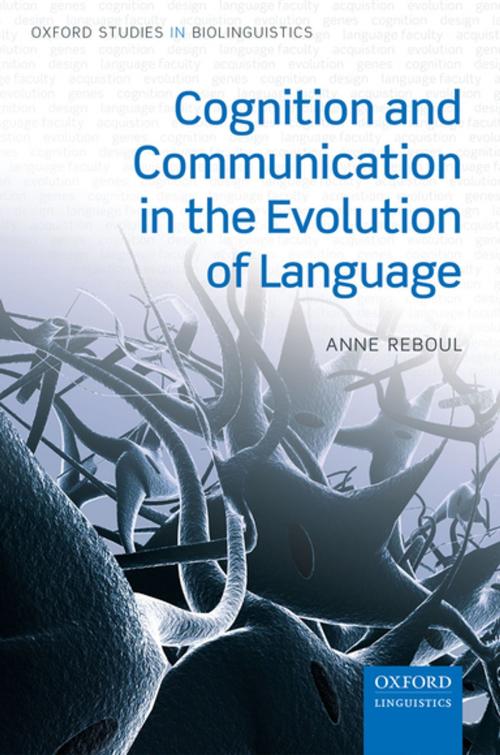Cognition and Communication in the Evolution of Language
Nonfiction, Reference & Language, Language Arts, Linguistics, Health & Well Being, Psychology| Author: | Anne Reboul | ISBN: | 9780192549181 |
| Publisher: | OUP Oxford | Publication: | March 16, 2017 |
| Imprint: | OUP Oxford | Language: | English |
| Author: | Anne Reboul |
| ISBN: | 9780192549181 |
| Publisher: | OUP Oxford |
| Publication: | March 16, 2017 |
| Imprint: | OUP Oxford |
| Language: | English |
This book proposes a new two-step approach to the evolution of language, whereby syntax first evolved as an auto-organizational process for the human conceptual apparatus (as a Language of Thought), and this Language of Thought was then externalized for communication, owing to social selection pressures. Anne Reboul first argues that, despite the routine use of language in communication, current use is not a failsafe guide to adaptive history. She points out that human cognition is as unique in nature as is language as a communication system, suggesting deep links between human thought and language. If language is seen as a communication system, then the specificities of language, its hierarchical syntax, its creativity, and the ability to use it to talk about absent objects, are a mystery. This book shows that approaching language as a system for thought overcomes these problems, and provides a detailed account of both steps in the evolution of language: its evolution for thought and its externalization for communication.
This book proposes a new two-step approach to the evolution of language, whereby syntax first evolved as an auto-organizational process for the human conceptual apparatus (as a Language of Thought), and this Language of Thought was then externalized for communication, owing to social selection pressures. Anne Reboul first argues that, despite the routine use of language in communication, current use is not a failsafe guide to adaptive history. She points out that human cognition is as unique in nature as is language as a communication system, suggesting deep links between human thought and language. If language is seen as a communication system, then the specificities of language, its hierarchical syntax, its creativity, and the ability to use it to talk about absent objects, are a mystery. This book shows that approaching language as a system for thought overcomes these problems, and provides a detailed account of both steps in the evolution of language: its evolution for thought and its externalization for communication.















